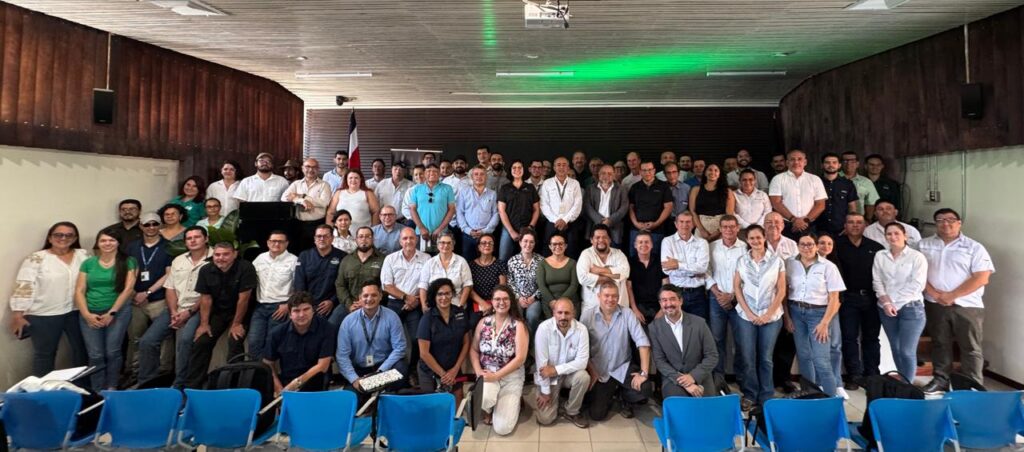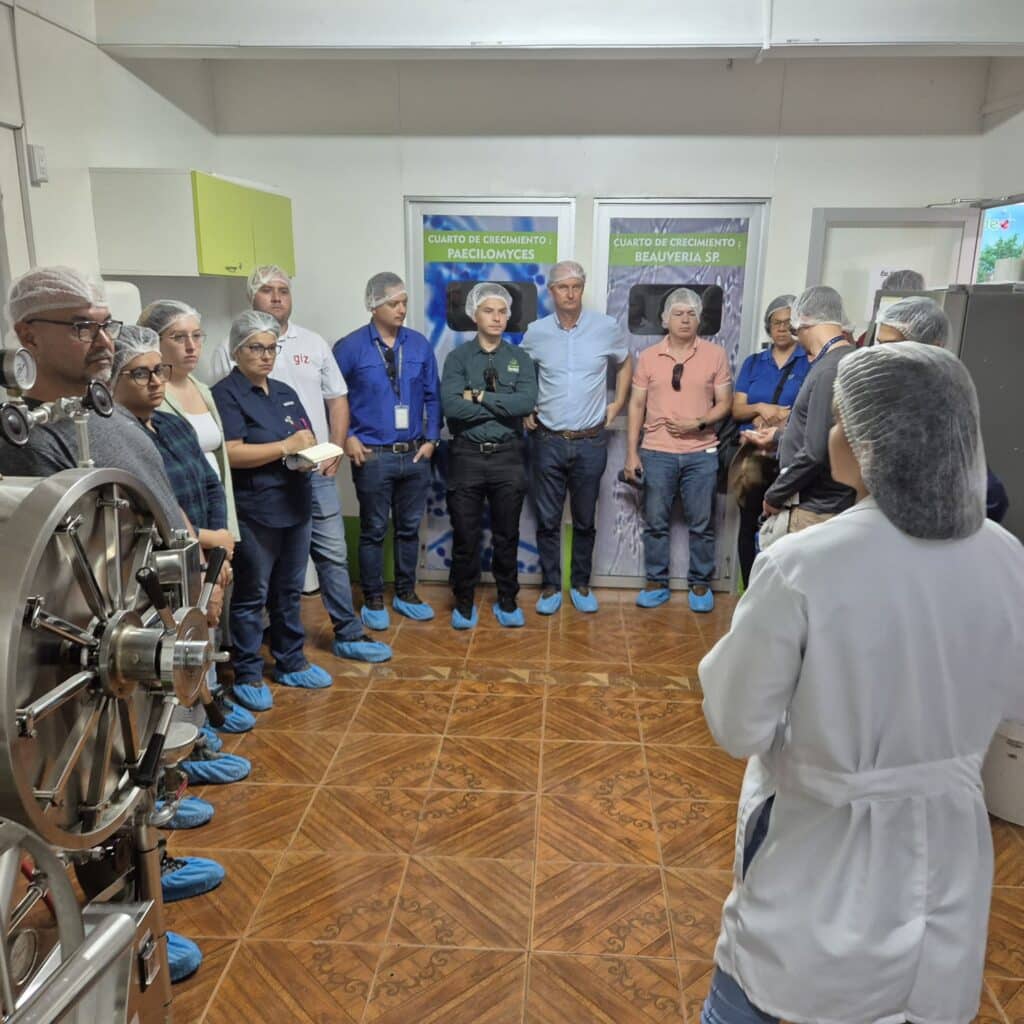
San José, Costa Rica, 27 March 2025. The Technology Institute of Costa Rica, based in the canton of San Carlos, hosted the second meeting of the National Forum on Bioinputs, whose goal is to construct a national strategy for promoting the appropriate use of bioinputs in agricultural production in the Central American country.
The forum also promotes the sharing of knowledge and experiences on the regulation, quality, and application of bioinputs as part of a comprehensive sustainable production strategy that contributes to food security, value added, higher incomes, and environmental conservation.
The meeting of the National Bioinputs Forum was made possible by the joint efforts of Costa Rica’s Ministry of Agriculture (MAG), the Environmental Quality Management Directorate (DIGECA) at the Ministry of Environment and Energy (MINAE), the Inter-American Institute for Cooperation on Agriculture (IICA), the National Center for Biotechnology Innovations (CENIBiot), and the program “Biodiversity and Business in Central America and the Dominican Republic,” which Germany’s cooperation agency (GIZ) is implementing on behalf of the German government.
Bioinputs are biological products derived from microorganisms, plant extracts, and other natural compounds used in production systems to promote more sustainable agricultural practices by improving soil fertility, contributing to plant and animal health, and controlling pests and diseases.
At the latest meeting of the forum, national and international experts discussed the central elements of a possible national bioinputs strategy, and analyzed success stories, best practices, and lessons learned in the development and use of bioinputs across the region, as part of their goal of coordinating multisectoral efforts and generating concrete proposals adaptable to Costa Rica’s agriculture sector.
Costa Rica’s Vice Minister of Agriculture and Livestock, Fernando Vargas Pérez, took part in the event. He underscored the importance of identifying the barriers that limit the adoption of bioinputs and the actions needed to overcome them, given the imperative need to ensure agricultural productivity and food security.
“The transition to the use of bioinputs is essential to make our farmers more competitive in a global market that demands more sustainable products. Against the backdrop of climate crisis, soil degradation, and biodiversity loss, the use of bioinputs is also a powerful tool for achieving more resilient and much more efficient agriculture,” Vargas said.
The second meeting of the forum consolidated the work carried out at the first event, and laid the groundwork for the creation of a Specialized National Technical Committee, whose mission would be to support and guide the development of a policy promoting the use of bioinputs in the agriculture sector.
The forum also aims to foster collaboration among key stakeholders in the subsector, such as public institutions, the private sector, academia, international cooperation agencies, producers, and civil society organizations. The challenge is to scale up the adoption of bio-based products, ensuring their quality and promoting environmentally friendly production.
Svenja Paulino, Director of the Biodiversity and Business Program, remarked that: “Ultimately, the use of bioinputs is a concrete opportunity to make progress toward sustainable agriculture by integrating biodiversity into production practices as a strategic value. However, for this transition to be effective, we need to strengthen partnerships between the public sector and businesses, promoting collaborative work that speeds up the adoption of long-term sustainable solutions. It is also essential to share experiences with other countries that have already taken this path, to learn from their challenges and adapt best practices to the local situation.”

The second meeting of the National Forum on Bioinputs was spread over two days, kicking off with a keynote address for key strategic stakeholders. The program on the second day included field visits to learn how several local companies develop and implement bioinputs in their production processes. The companies visited were Nicoverde, Ingenio Quebrada Azul, and FERTINYC, all of which are committed to the use of innovative technologies in agricultural production.
The event was used to set out the general context of bioinputs in the country; address policy, governance, and quality issues; and discuss aspects of science, technology, innovation, knowledge management, and skills development.
In his remarks to the forum, Mr. Muhammad Ibrahim, Director of Technical Cooperation at IICA, highlighted the importance of promoting the use of bioinputs as a key tool for sustainable agricultural production. He emphasized the need for coordinated efforts by the government, businesses, and producers to galvanize the transition toward more sustainable food systems, based on growing consumer demand for responsibly produced foods with a lower environmental impact.
“If we want to progress toward sustainable food systems, it is essential to strengthen research, improve the quality of such inputs, and ensure their availability to producers. It is also crucial to reduce emissions associated with agricultural production and have a clear regulatory framework that facilitates the commercialization of bioinputs, giving confidence to both producers and consumers. Cooperation among key stakeholders is essential to speed up this transition,” Ibrahim remarked.
The implementation of a National Bioinputs Strategy in Costa Rica would be a significant step towards achieving a more competitive, low-environmental-impact agricultural industry that allows for the structured scaling of bioinput use, ensuring their quality and compatibility with other agricultural inputs. Bioinputs not only improve crop health and food quality, but also boost the resilience of agricultural production systems to climate change, thus contributing to ecosystem conservation.
The region’s bioinput market is experiencing rapid growth. Collaboration among the public sector, academia, international cooperation agencies, and producers is essential to maximize its impact. Costa Rica is making progress in building a more efficient, resilient, and sustainable agricultural model, in which bioinputs play a key role.











